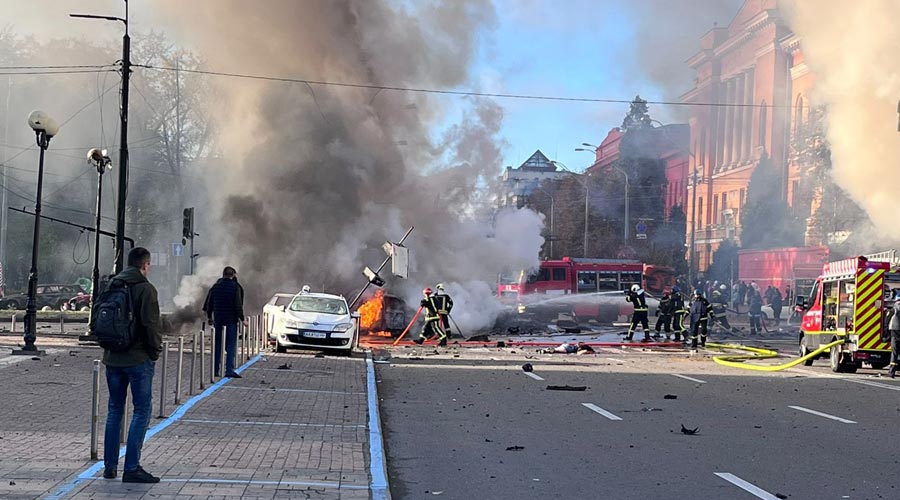Ukrainian forces struck the Russian-occupied city of Melitopol with missiles on Saturday, the authorities said, signalling the importance of artillery in the next phase of Ukraine’s campaign to recapture land in the south of the country.
The attack hit a church that was being used as a base by Russian soldiers, according to the exiled mayor of the city, Ivan Fedorov, who posted video taken at night of a large fire burning in the distance.
“Fireworks in the east of Melitopol,” Fedorov said on the Telegram social messaging app. Russian forces were ferrying their wounded by car to hospitals in Crimea, Fedorov said, but many people had also been killed. It was not possible to verify the video or some of the details independently.
Tass, a state-owned Russian news agency, quoted the pro-Russian acting governor of the Zaporizhzhia region, Yevgeny Balitsky, as saying that a strike on Melitopol using a HIMARS system had killed two people and wounded 10 others.
Ukrainian partisans working behind Russian lines have for months launched attacks on targets around Melitopol, including one in the summer close to Balitsky’s office.
Fedorov said that there had also been other attacks in the city in recent days, as well as a strike on the port city of Berdiansk further east.
Ukraine recaptured the city of Kherson in mid-November, forcing Moscow to withdraw its troops to the east bank of the Dnipro River after months of military pressure and opening a new phase of the battle for the south of the country.
The advance has enabled Ukraine to use longer-range artillery, including the HIMARS weapons system supplied by the United States, to strike targets deeper inside Russian-controlled territory between the eastern bank of the river and the Sea of Azov, an area that includes Melitopol.
However, military experts caution that the next phase of the battle is likely to be slow. Russian forces, led since October by Sergei Surovikin, have improved their defences in the south and east of the country in recent weeks.
“Surovikin ordered a network of trenches and defensive positions to be built in many areas, as Russia transitions to an overall defensive position through the winter,” said Dara Massicot, a senior policy researcher at the RAND Corporation, in a thread on Twitter.
In addition, it is difficult for Ukrainian forces to cross the Dnipro River in large numbers, a likely prerequisite to any advance. Russian forces benefit from shortened supply lines and proximity to Crimea, a region further south that Moscow annexed illegally in 2014.
An adviser to Ukrainian President Volodymyr Zelensky, Oleksiy Arestovych, said Melitopol, a major industrial and transport centre occupied by Russia since March, was key to the defence of the south.
“All logistics linking the Russian forces on the eastern part of the Kherson region and all the way to the Russian border near Mariupol is carried out through it,” Arestovych said in a video interview on social media.
“If Melitopol falls, the entire defence line all the way to Kherson collapses. Ukrainian forces gain a direct route to Crimea.”











